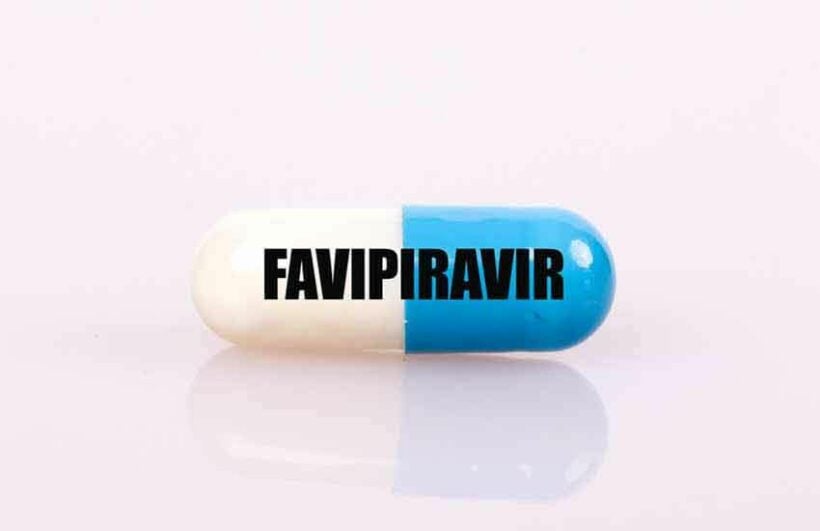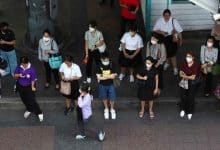Medics concerned about using anti-viral Favipiravir in Covid patients with minor symptoms

Medical experts are voicing their concern over the Bangkok Metropolitan Administration’s plan to use the anti-viral drug Favipiravir to treat field hospital patients. Field hospitals are currently being used for so-called “green” Covid-19 patients… those with only minor symptoms, or none.
Favipiravir, sold under the brand name Avigan among others, is an antiviral medication used to treat influenza in Japan. It is also being studied to treat a number of other viral infections, including SARS-CoV-2 (Covid-19). Like the experimental antiviral drugs T-1105 and T-1106, it is a pyrazinecarboxamide derivative.
It is being developed and manufactured by Toyama Chemical (a subsidiary of Fujifilm) and was approved for medical use in Japan in 2014. In 2016, Fujifilm licensed it to Zhejiang Hisun Pharmaceutical of China. It became a generic drug in 2019, allowing the company to produce it in the People’s Republic of China – Wikipedia
Earlier this week, Bangkok governor Aswin Kwanmuang announced that officials would treat field hospital patients with Favipiravir as soon as they were admitted. He said patients would be given 10 tablets a day over 5 days, amounting to a total of 50 tablets per patient. However, according to a Bangkok Post report, the Public Health Ministry has called for the proposed treatment to be approved by medical experts before it goes ahead. This comes as a result of a number of medics raising concerns about the treatment, particularly the risk that patients could develop resistance to it.
Nitipatana Chierakul from the Faculty of Medicine at Siriraj Hospital says he disagrees with the proposal to use Favipiravir to treat all Covid patients. Posting on his Facebook page, he says this policy could create a shortage of supply, with those in urgent need unable to get hold of it. Furthermore, he says use of the anti-viral drug to treat Covid-19 patients is considered “non-rational”, meaning such usage is not what it was designed for. This could produce adverse side-effects in some patients.
He points out that it’s still early days in terms of the drug’s usage and there is no clinical data to support claims that it can reduce severe illness or lung inflammation. He says while the medication was approved for emergency use during the first wave of infections, it was only used in patients with severe lung inflammation at that time.
He points out that while one clinical data review appears to show the drug is safe and can reduce the severity of symptoms, it is not in use in western countries and there is no academic evidence to back up the claims.
Aswin has now confirmed that BMA officials will meet with medical experts today to discuss the proposed use of the medication in field hospital patients.
SOURCE: Bangkok Post
Latest Thailand News
Follow The Thaiger on Google News:


























